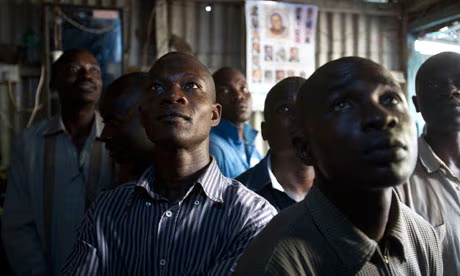
In the cities and villages of Kenya, a generation of young men is fighting battles that few speak about. They walk with a confident gait, laugh with their friends, and scroll through social media with an air of ease, but beneath the surface lies a world of silent struggles. These are not just economic woes or career frustrations, but deeply personal wars involving identity, pressure, expectation, and the fear of not being enough.
At the heart of it all is a changing society that has not made space for the emotional reality of the modern Kenyan man. Traditionally seen as the provider and protector, today’s young man is navigating a world where the definition of masculinity is shifting, yet societal expectations remain fixed. “Be strong,” they are told. “Don’t cry,” they are reminded. But where does that leave the boy who is quietly battling depression? The young man overwhelmed by joblessness? The son torn between tradition and a desire to live on his terms?
Unemployment sits like a dark cloud over many of these lives. Despite degrees, diplomas, and determination, jobs remain elusive. In a culture that often measures a man’s worth by his financial standing, this lack of economic power chips away at self-esteem. Some turn to side hustles, others to betting, and sadly, some to substance abuse. The pressure to “make it” is constant, and the fear of being seen as a failure haunts many in silence.
Even within the family unit, young men often feel unseen emotionally. They are expected to support their parents, guide their siblings, and plan for a future family, all while receiving little to no emotional support themselves. A simple “how are you doing?” is rarely asked, and even when it is, the instinct is to brush it off with a smile.
Romantic relationships, too, come with their weight. The cost of dating and marriage expectations, particularly dowry and societal standards of being a “real man,” often feel like steep hills to climb. Many struggle to love when they are not even sure how to care for themselves. Vulnerability is rarely welcomed; it is seen as weakness.
Mental health remains an unspoken elephant in the room. Few seek therapy or counseling, mostly due to stigma, cost, or the belief that a man should figure it out on his own. And so, emotions are swallowed, breakdowns are postponed, and inner wounds are patched up with jokes and silence.
Yet, amid all this, there is resilience. Young Kenyan men are starting to talk, in barbershops, online forums, and among trusted circles. A few are bravely seeking help, pushing past stigma to speak with counselors or share their truths in blogs and music. Some are redefining masculinity by choosing empathy, emotional openness, and self-awareness.
But it’s time the country listened more attentively. These men need more than pressure and expectations. They need understanding. They need safe spaces. And above all, they need to know it’s okay not to be okay.
Because behind every composed face is a story untold, and perhaps if we begin to listen, we will understand that strength is not in silence, but in being seen and heard.


